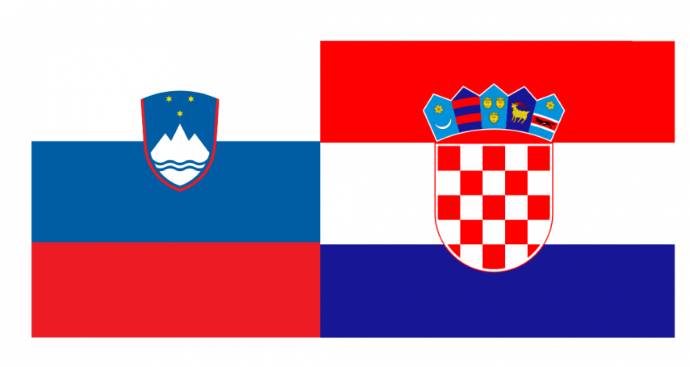In setting the land border between Slovenia and Croatia on 29 June 2017, the international tribunal largely followed the cadastral borders of municipalities, which means that in many areas the border line remains troublesome for the locals, especially along the Mura river and in the south-eastern region of Bela Krajina.
The disputed border area near the village of Hotiza on the north side of the Mura river in the north-east of the country was awarded to Slovenia, while Croatia got the disputed left bank of the Dragonja river in the south-west.
At sea, Slovenia won the bulk of the disputed Piran Bay and a 100 km2 junction area that secures Slovenia's access to the high seas. The area is defined as a kind of mixture of Croatian and international waters but with all rights that apply to international waters.
The freedoms granted in the junction area and not limited to Slovenia include "the freedoms of navigation and overflight and of the laying of submarine cables and pipelines, and other internationally lawful uses of the sea related to these freedoms".
But they do not include the freedom to explore, exploit, conserve or manage the natural resources of the waters, the seabed or subsoil in the area.
Although Slovenia was hoping for a more favourable solution, the Miro Cerar-led government immediately announced Slovenia would honour and implement the tribunal's decision.
Some criticism and discontent could be heard, especially from the opposition's ranks, but in general the Slovenian politicians have been united on the matter.
Meanwhile, Croatia has insisted that the arbitration process is dead after it was "irreversibly contaminated" in 2015, when a wiretapping scandal revealed prohibited contacts between the arbitrator appointed by Slovenia and the country's agent.
But the tribunal decided in 2016 that the violation had not been so severe as to derail the process.
The efforts of Slovenia and the European Commission to have Croatia honour the arbitration award after all have so far produced no tangible results.
While their view that the international law and agreements should be honoured was upheld by countries such as Germany, France, Austria and the Benelux countries, no country has explicitly backed Croatia's stand.
However, the country nevertheless got some support for its argument that the border is a bilateral issue, most notably from the US.
Croatia has been pushing for bilateral dialogue, whereas Slovenia has been rejecting further talks that would distance it from the arbitration award.
Croatian Prime Minister Andrej Plenković has proposed a "legal framework" for a bilateral solution to Cerar on 19 December 2017, but the Slovenian prime minister turned down the offer, saying that he could only talk about the implementation of the arbitration award.
Despite Croatia's rejection of the award, Slovenia initiated procedures for its implementation as stipulated in the 2009 arbitration agreement, which gives the two countries six months to prepare for implementation, that is until the end of 2017.
Zagreb has insisted that a unilateral implementation of the award was not possible and the Slovenian government has had to acknowledge that marking the border on the ground and settling the records would not be possible without Croatia's cooperation.
Nonetheless, Slovenia started implementing the arbitration decision on 30 December, especially at sea where the tribunal provided coordinates for the course of the border and no additional bilateral talks are needed.
This resulted in a bureaucratic war, as the two countries started issuing fines to the fishermen crossing the border.
Fishermen from both sides of the border who were fined have launched appeals and the procedures are still ongoing.
The implementation of the border decision on land is causing less drama.
Slovenia has passed a special legislative package to allow its citizens and companies whose land was awarded to Croatia to move to Slovenia on state support.
The process has been running smoothly and people appear to be happy with the arrangement.
Slovenia, meanwhile, continues to push for Croatia to start implementing the award and plans to take the country to the EU's Court of Justice over non-implementation.
It is using Article 259 of the Lisbon Treaty, which enables a member state to take another member to the EU's Court of Justice due to violations of EU law.
Slovenia sent a letter to the European Commission on 16 March, notifying it of its intention and the Commission has until 19 July to decide whether to get involved.
The outgoing PM Cerar has been given a green light from the parliamentary Foreign Policy Committee to go ahead with the procedure even if the Commission opts out. He may, however, leave the matter to his successor.






